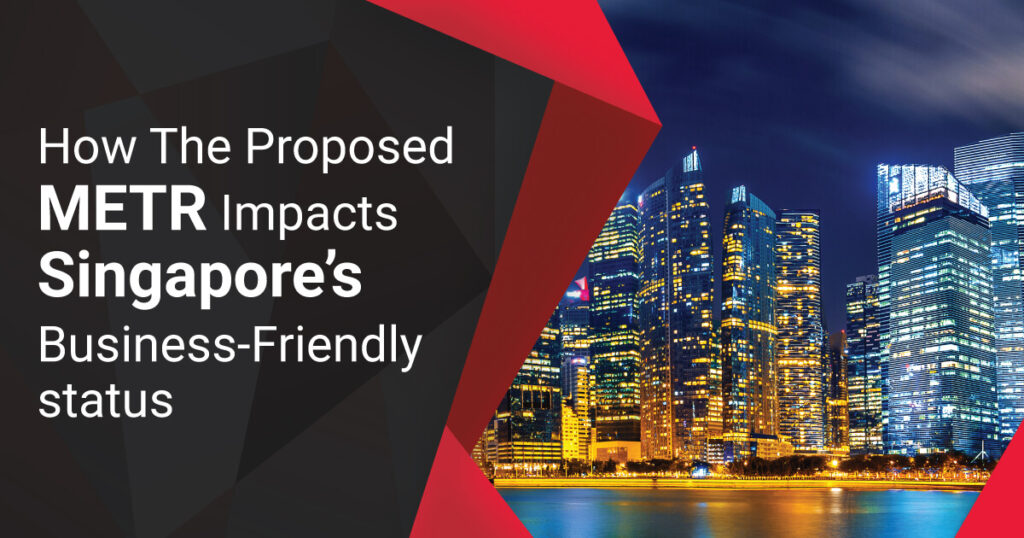The current watercooler small talk will no doubt be filled with talk of the hike of the Goods and Services Tax (GST) and the carbon tax, but the C-Suite chatter will also be concerned about the proposed minimum effective tax rate (METR) for corporations.
Tax is always an obscenity at any boardroom, much less one located in Singapore — but what does it actually mean for our reputation as a business-friendly oasis for multinational enterprise (MNE) groups?
While the METR top-up is not only long overdue, it won’t do anything to dent Singapore’s business-friendly reputation.
Amid global tax developments of late, Singapore is
exploring a METR to top-up the effective tax rate of MNE groups in Singapore to 15 percent. This is in response to Pillar Two of the base erosion and profit shifting initiative (BEPS 2.0), which, amongst other proposals, aims to introduce a global minimum effective tax rate of 15 percent for some MNE groups. There are 141 countries involved, so we are far from alone — even the Cayman Islands and Luxembourg, nations known for being tax havens, are included.
While the current headline corporate tax rate is 17 percent, Singapore has so many tax exemptions available that the effective tax rate for many companies is much lower. The METR would ensure that all companies pay a minimum effective tax, regardless of their location or the structure of their operations.
Why is this important?
For one, the global tax landscape has changed dramatically in recent years, with countries much more willing to work together to crack down on tax avoidance. The Organisation for Economic Co-operation and Development (OECD) — of which Singapore is a member — has been instrumental in developing the BEPS initiative, and its 15 percent minimum effective tax rate is widely seen as a floor that countries should aspire to.
Singapore has always been an early adopter of global tax norms, and it’s important that we stay ahead of the curve on this issue. Our low tax rate and business-friendly environment have been key drivers of our economic growth for 50 years, but in 2022, that’s just not good enough anymore.
It’s for that reason that the METR won’t affect Singapore’s business-friendly reputation — if we use it as an incentive to think in a post-tax advantage mindset.
Looking into the future, gone are the days when Singapore could use our low tax rate or tax incentives as a competitive edge. There are so many other factors that influence investment across the board, and we need to use our famous foresight to capitalize on this.
We need to work harder on our other non-tax strengths — a stable political environment, strong rule of law, world-class infrastructure, a hard-working and skilled labor force, and of course, our
legendary business-friendly environment. These are real-world advantages, that combined, no other country can replicate.
Reactions in Singapore
The proposed METR has been met with mixed reactions from the business community, with some concerned that it will impact Singapore’s competitive edge. However, most believe that this is a necessary step forward in the global fight against tax avoidance and that Singapore should embrace it.
Our economy is strong and we have the ability to adapt, so let’s take this opportunity to lead the way in implementing a global minimum effective tax rate — all the while using it as a catalyst for us to capitalize on all of our non-tax related advantages that will secure our future.
The government will likely provide further details on the METR sooner rather than later to help businesses determine the potential financial impact and allow them to plan for it.
Potential areas of guidance for businesses could include helpful changes to the tax and non-tax incentives to encourage continued investment growth, as well as a roadmap for the transition period for Singapore businesses. I’m confident that our government is fully capable of this and will provide the necessary support to ensure a smooth transition.
The METR is not a silver bullet for global financial fairness, but it’s an important step in the right direction as we position ourselves for the future. It will not harm our business-friendly reputation if we use it as an accelerator to capitalize on our many other inherent strengths.
Singapore can’t afford to lag behind on this issue, and Singapore businesses will see it as an opportunity to further capitalize on our many strengths and continue to thrive in this globalized economy.
FAQs
- The current tax on corporate income is imposed at a flat rate of 17%.
- Yes. Singapore is not only reliant on its low tax rate but also offers several tax breaks and exemptions depending on your business circumstances.
- At this point, the Singapore Government is in the exploratory stage, and will continue to update the public on new developments.
Appoint us
Eliminate the stress from your Singapore Taxation
Engage us for Taxation services, and liaise with our dedicated specialists who will attend to every aspect of your tax requirements.
About the Author
InCorp's content team includes talented copywriters from our regional group and globally. We contribute informative, thought leadership, and market-trending articles to guide aspiring business entrepreneurs to a higher level across the Asia-Pacific region.
More on Business Blogs


